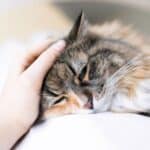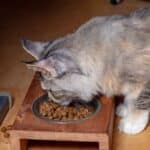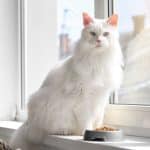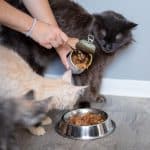Just as what we eat affects our bodies, the same is true for our pets. Cats and dogs need a balanced diet to stay healthy. But a healthy diet doesn't need to include a large amount of human food, and there are certain foods that you should steer clear of altogether. That's why we've put together this list of harmful foods for your Maine Coon.
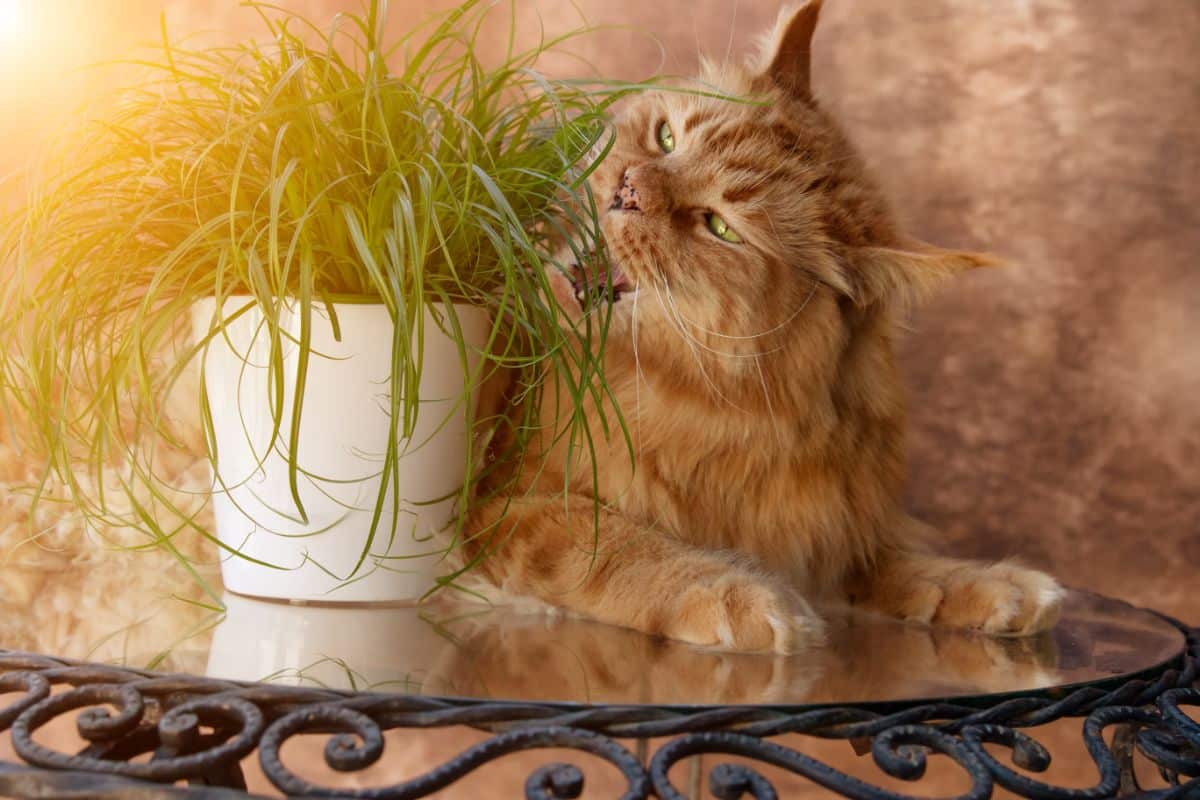
These foods can cause everything from diarrhea to liver damage, so avoid them at all costs.
Jump to:
Dairy
As much as your cat may show interest in milk and cheese, dairy can be dangerous for Maine Coon cats.
Cats are lactose intolerant, which means they can't properly digest dairy products because they lack a specific stomach enzyme. Eating dairy can cause stomach upsets, more frequent urination, diarrhea, and loss of appetite in cats. It's best to avoid giving your Maine Coon any dairy product, including milk, cheese, and yogurt.
If you must give your cat milk, choose a lactose-free variety or give them a small amount of cream instead. Whipping cream has less lactose than milk and is easier for cats to digest.
Chocolate
You probably know dogs can't have it, but you might be wondering, "Can Maine Coons eat chocolate?"
Chocolate contains theobromine, a stimulant that is toxic to cats. Theobromine can cause:
- Vomiting
- Diarrhea
- Trembling
- Respiratory effects
- Heart complications
It can also harm your Maine Coon's central nervous system.
Some types of chocolate have higher levels of theobromine than others. For example, dark chocolate has more theobromine in it than milk chocolate. The darker the chocolate, the more dangerous it is for your cat. But keep all types of chocolate away from your Maine Coon.
Alliums
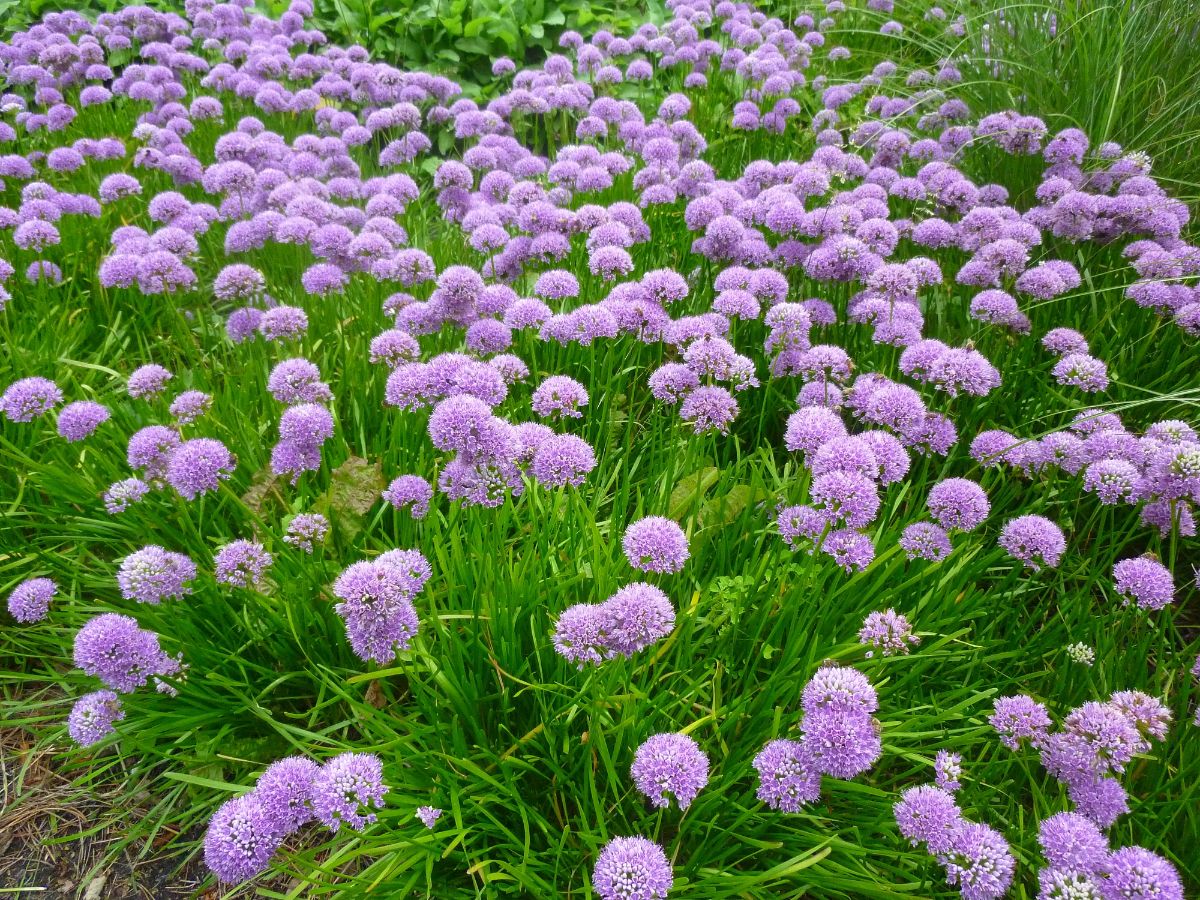
Alliums are flowering plants that include onions, garlic, and chives. They contain compounds called thiosulphates and disulfides, which are toxic to cats if ingested. Eating alliums can cause hemolytic anemia in cats, also called Heinz body, which is a condition that destroys red blood cells faster than they can be produced.
Symptoms of allium poisoning include vomiting, lethargy, weakness, and difficulty breathing. If you think your Maine Coon has eaten any alliums, take them to the vet immediately for treatment.
Grapes
Although grapes may seem harmless, they can be poisonous to cats. They can safely munch on other fruits like apples, blueberries, or bananas, but you should avoid giving your cat grapes and their derivatives (like raisins).
The toxic substance in grapes is unknown, but eating them can cause renal failure in cats. Renal failure is a serious condition where the kidneys can't filter toxins out of the blood properly.
Symptoms include vomiting, diarrhea, lethargy, and loss of appetite. If you think your Maine Coon cat has eaten any grapes and displays any of these symptoms, call the vet straight away.
Mushrooms
While some mushrooms are safe for cats to eat, others can be poisonous. The toxic ones contain compounds called hydrazines and terpenoids, which can cause liver damage. Eating poisonous mushrooms can also lead to tremors, seizures, and death.
If you're unsure whether a mushroom is safe for your cat, it's best to err on the side of caution and avoid giving them any at all. Most store-bought mushrooms are safe for cats to eat, but wild mushrooms pose a greater risk. Some of these dangerous mushroom types include:
- Death Cap and Destroying Angel: Contain Amanitin toxins
- Inocybe and Clitocybe mushroom families: Contain Muscarine toxins
- Fly Agaric and Panther: Contain Isoxazole toxins
- Psilocybe family: Contains psilocybin
While indoor Maine Coon cats may not have the opportunity to ingest a wild mushroom, any mushrooms kept at the house, especially ones that aren't store-bought should be kept in a safe spot away from your cat.
Raw Egg

While raw eggs are okay for humans to eat, they are a health risk for cats. Raw eggs may contain harmful bacteria like Salmonella or E. coli, which can cause food poisoning. They may also contain an enzyme called avidin, which can interfere with the absorption of biotin (a B vitamin).
Eggs are a healthy part of a cat's diet, but you should always cook them before feeding them to your cat. You can cook them in various ways, such as scrambled, hard-boiled, or sunny-side up, but cats aren't usually that picky.
Caffeine
Maine Coon cats are much less sensitive to caffeine than humans, but it's still best to avoid giving them coffee, tea, soda, or energy drinks. Caffeine can cause restlessness, rapid breathing, heart palpitations, and even death in cats. Their body masses are much smaller than ours, so even a small amount of caffeine can have a noticeable effect on Maine Coon cats.
If your cat has accidentally ingested caffeine, watch for symptoms like hyperactivity, increased heart rate, vomiting, and diarrhea. If they seem to be displaying any of these symptoms, call your vet for the next steps.
Cooked Bones
While it may seem like a good idea to give your cat some of your leftover cooked chicken bones, it's quite dangerous. Raw bones are safe for cats to eat, but cooked ones can splinter and cause choking or intestinal blockages.
If your cat has accidentally ingested a cooked bone, watch for symptoms like vomiting, diarrhea, lethargy, and loss of appetite.
Salt
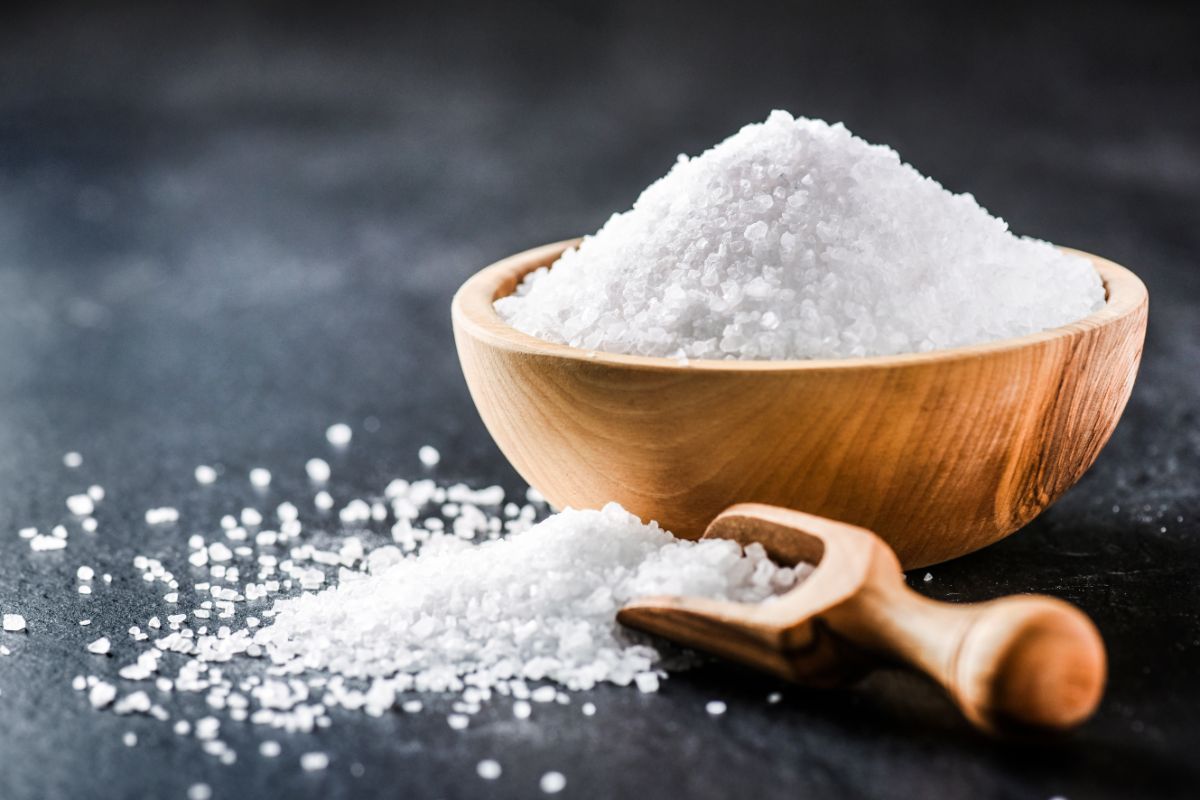
A little bit of salt probably won't hurt your cat, but feeding them a diet high in salt can cause health problems down the road. Too much salt can lead to:
- Dehydration
- Electrolyte imbalances
- High blood pressure
It can also lead to sodium ion poisoning, which can happen when they ingest salt at levels that are too high. Sodium ion poisoning can cause convulsions or seizures, urination, thirst, restlessness, vomiting, and ataxia (loss of coordination).
Xylitol
Xylitol is a sugar alcohol often used as a low-calorie sweetener in human foods. It's found in candy, gum, baked goods, and some toothpaste and mouthwashes. Xylitol is safe for humans to consume, but it can cause harm to cats.
Like dogs, xylitol can cause a rapid drop in blood sugar levels (known as hypoglycemia) for cats, leading to weakness, loss of coordination, and collapse. It can also cause liver damage. If your cat has ingested anything containing xylitol, call your vet immediately.
Yeast Dough
Yeast dough can be dangerous for cats for a few reasons. Firstly, as it rises, it can expand in your cat's stomach and cause pain or ruptures in your pet's intestinal lining. Secondly, if ingested, it can release alcohol into your cat's bloodstream from the fermented sugars, which can cause an upset stomach, diarrhea, lethargy, or worse.
Avoid feeding your Maine Coon any kind of yeast dough, which includes pizza!
Final Thoughts: Feeding Your Maine Coon a Healthy, Balanced Diet
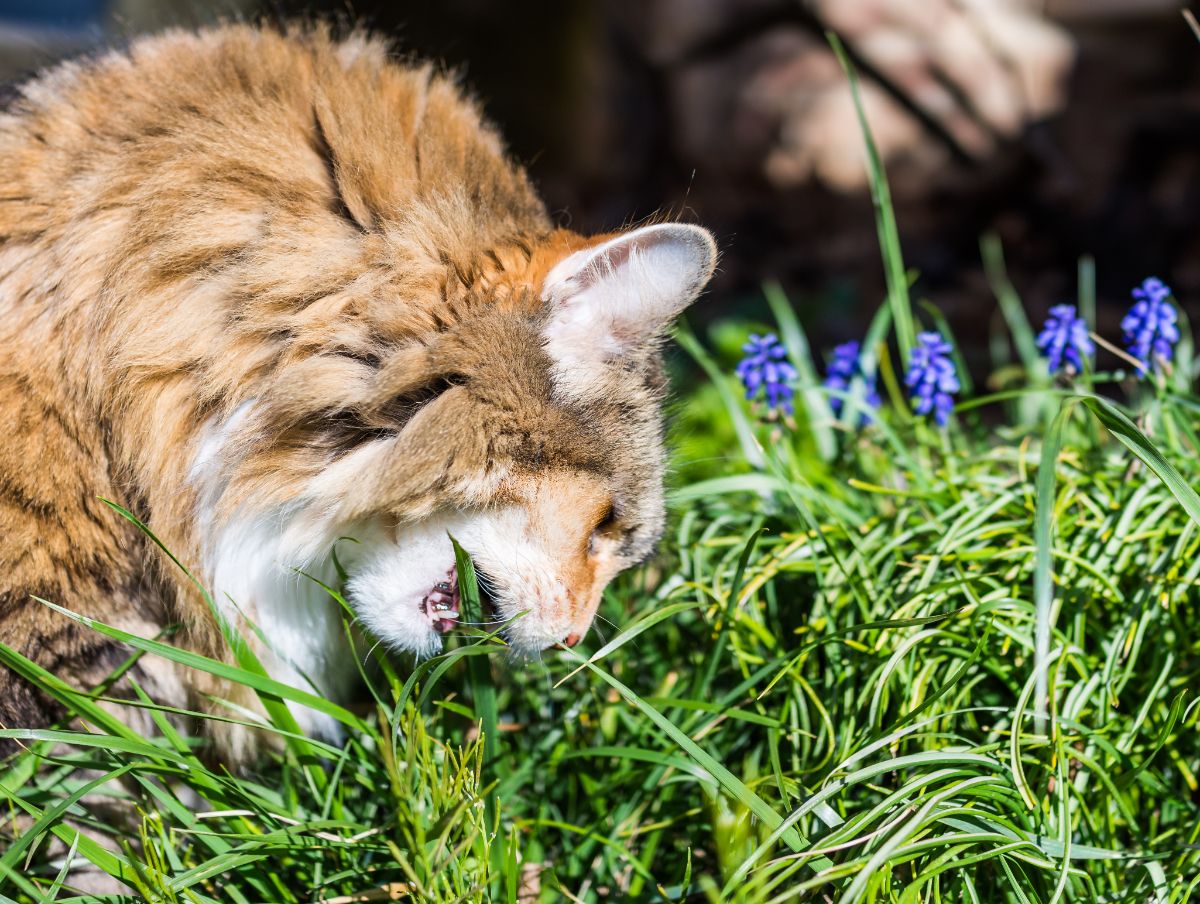
The best way to keep your Maine Coon healthy and happy is to feed them a diet that's well-balanced and nutritious. Finding a vet-approved cat food that they enjoy is the foundation of a healthy diet.
Maine Coon cats can eat a wide variety of foods, but some should be avoided. Dairy, chocolate, alliums, grapes, mushrooms, raw eggs, caffeine, cooked bones, salt, xylitol, and yeast dough can all be harmful to Maine Coons.
If you think your cat has ingested anything on this list, call your vet for medical help.

